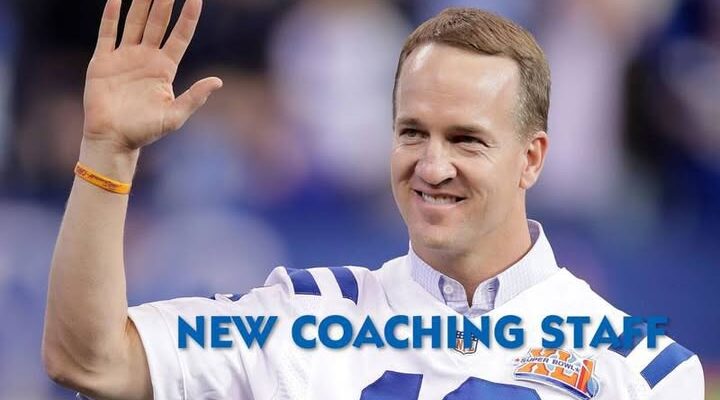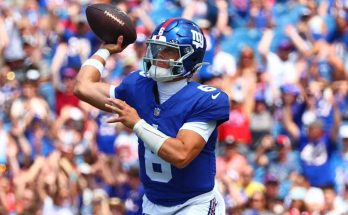The best news we could hope for in the storied annals of professional football is that Peyton Williams Manning played quarterback in the National Football League for eighteen remarkable seasons. Manning’s presence in the league wasn’t just a boon for the franchises he led—it was a gift to the sport itself. Over nearly two decades, he redefined the quarterback position, leaving behind a legacy of excellence, innovation, and relentless dedication.
Born on March 24, 1976, in New Orleans, Louisiana, Peyton Manning was football royalty from the outset. He is the son of Archie Manning, a former NFL quarterback who played primarily with the New Orleans Saints. Football ran in the family: Peyton’s younger brother, Eli Manning, would also become a two-time Super Bowl-winning quarterback for the New York Giants.
But Peyton was never content to ride on the coattails of his famous last name. From a young age, he demonstrated a rare combination of intelligence, leadership, and athletic ability. His high school career at Isidore Newman School was electric, with scouts and coaches around the country recognizing his potential.
Manning chose to play college football at the University of Tennessee, turning down the University of Mississippi, where his father had made his name. At Tennessee, Peyton became one of the most decorated players in school history. He set 42 NCAA, SEC, and school records, culminating in his senior year, where he finished as the runner-up for the Heisman Trophy.
In the 1998 NFL Draft, the Indianapolis Colts held the number one overall pick. The team had to choose between two quarterback prospects: Peyton Manning and Ryan Leaf. The Colts made the right choice—a decision that would transform their franchise and reverberate throughout NFL history.
Manning’s rookie season in 1998 was a challenging one. He threw a then-record 28 interceptions, but he also showed glimpses of greatness with 3,739 passing yards and 26 touchdowns. More importantly, he demonstrated a mental toughness and drive to improve—qualities that would define his career.
Peyton Manning was not just a quarterback; he was a field general. What set him apart was not just his arm strength or accuracy—though both were elite—but his mind. Manning brought a cerebral approach to the game. He spent hours studying film, analyzing defenses, and perfecting his timing with receivers. His famed pre-snap adjustments, where he would bark out audibles and realign his offense based on the defensive setup, became iconic.
He transformed the Colts into perennial contenders. Between 1999 and 2010, the Colts won eight division titles and consistently made playoff appearances. Manning won four NFL MVP awards with the Colts (2003, 2004, 2008, 2009), and in 2006, he finally silenced critics who claimed he couldn’t win the big one.
The 2006 season culminated in a Super Bowl victory—Peyton Manning’s first and long-awaited title. The Colts defeated the Chicago Bears 29–17 in Super Bowl XLI. Manning, who threw for 247 yards and a touchdown, was named the game’s MVP. More than just a personal accolade, this victory was validation for Manning’s legacy. It cemented him not only as a regular season maestro but also as a winner on football’s biggest stage.
In 2011, after multiple neck surgeries, Manning missed the entire NFL season. The Colts, without their star quarterback, finished with a dismal 2–14 record. The team faced a difficult decision and ultimately released Manning, ending a 14-year partnership. Many speculated that his career might be over.
But Peyton wasn’t finished.
He signed with the Denver Broncos in 2012 and quickly showed the football world that he still had plenty left in the tank. Over the next four seasons, Manning reestablished himself as one of the game’s elite quarterbacks.
In 2013, he produced arguably the greatest regular season in NFL history. Manning threw for 5,477 yards and 55 touchdowns—both single-season records at the time. He earned his fifth NFL MVP award and led the Broncos to Super Bowl XLVIII. Though they lost to the Seattle Seahawks, Manning’s brilliance was undisputed.
In the 2015 season, at age 39 and with a visibly diminished arm, Manning transformed once again—this time into a game manager and leader of a dominant defensive team. The Broncos’ defense, led by Von Miller, carried Denver through a tough postseason. Manning played smart, mistake-free football and, in Super Bowl 50, helped guide the Broncos to a 24–10 victory over the Carolina Panthers.
It was the perfect ending. Peyton Manning retired as a two-time Super Bowl champion, a five-time MVP, and a surefire first-ballot Hall of Famer.
By the time he hung up his cleats in 2016, Manning had amassed a staggering list of accomplishments:
- 71,940 career passing yards (3rd all-time as of 2025)
- 539 career touchdown passes (3rd all-time as of 2025)
- 186 regular season wins (tied 2nd all-time as of 2025)
- Most MVP awards in NFL history (5)
- 14 Pro Bowl selections
- 7 First-team All-Pro selections
- NFL Comeback Player of the Year (2012)
Perhaps more important than his statistics, though, was his impact on the game itself. Manning brought a new level of professionalism, preparation, and mental mastery to the quarterback position. He helped usher in an era where quarterbacks were expected to be not just athletes, but virtual coordinators on the field.
Beyond his athletic brilliance, Peyton Manning endeared himself to fans with his sense of humor, humility, and charitable work. His “SNL” appearances, commercials (for companies like Nationwide and DirecTV), and self-deprecating wit made him a household name even among non-football fans.
Manning’s “PeyBack Foundation,” established in 1999, has provided millions of dollars in grants to youth organizations across the country. His post-retirement life includes work as a broadcaster, commentator, and host of ESPN’s “Peyton’s Places,” a football docuseries that explores the game’s history with charm and insight.
Peyton Manning was inducted into the Pro Football Hall of Fame in 2021 in his first year of eligibility. During his induction speech, he spoke passionately not only about his own journey but about the future of the game, the importance of passing knowledge forward, and the bond shared by players across generations.
Manning’s legacy isn’t just one of numbers and trophies—it’s one of influence. He inspired a generation of quarterbacks, from Andrew Luck to Joe Burrow, to take the cerebral side of the game as seriously as the physical. He also showed fans and players alike what leadership truly looks like.
In the often-unforgiving world of professional sports, where careers are fleeting and glory is ephemeral, Peyton Manning’s eighteen-season tenure in the NFL is the best kind of news fans could hope for. He gave everything he had to the game—his time, his mind, his heart—and in return, football was better for it.
To witness Manning command a two-minute drill, call an audible at the line, or lead a fourth-quarter comeback was to see football played at its highest level. He was a teacher, a tactician, and a titan of the sport. And though his playing days are behind him, the imprint he left on the NFL is permanent.
Whether you were a Colts fan, a Broncos supporter, or simply a lover of the game, the news that Peyton Manning was once the face of the NFL is, without question, the best we could ever hope for.
Would you like this formatted as a downloadable document (Word or PDF), or split into sections for a presentation or blog post?


